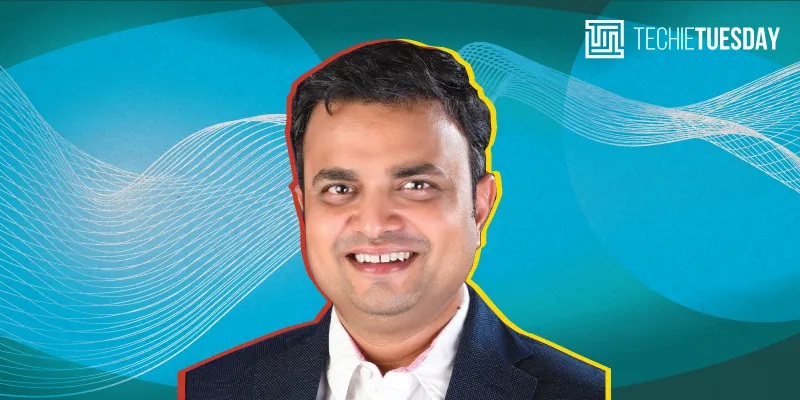WATCH: The week that was - from Chetan Maini's bet on battery swap tech to Yulu's shared mobility and customer engagement platform Narvar
This week, we focus on the journey of Praneet Khare, the Co-founder of Avid Secure, go behind the scenes at Yulu, and see how Chetan Maini is helping brew the electric mobility revolution.
We believe the best engineers are those who tell stories through their ability to code, and that's how we are going to begin this weekly wrap.
“How good a storyteller are you?” asks Praneet Khare, Co-founder, Avid Secure, a security startup that was recently acquired by Sophos, a global provider of network and end point security.
A techie for several decades now, Praneet says storytelling is an important skill for all, especially techies.
“When you’re selling a product, you need to be able to tell a story to the customer. And as techies, you need to understand that at the end of the day, you are building the product for a consumer. So, tell the right story. And this holds true even for the engineers you are hiring,” Praneet says.

Praneet Khare
In a conversation with YourStory, Praneet charts his journey from building something from scratch at SolidCore, a startup, to working with a giant like McAfee and his stint at InMobi, which led him to see success as an entrepreneur.
[Behind the scenes] Into the nuts and bolts of Yulu, the dockless bike-sharing platform
Getting a ride has never been so easy. Yulu will confirm. Yet, what happens when you click that button? Who actually services your demands? What algorithms are used, and how do experts ensure you get to ride into the sunset, happily?
In its latest series, YourStory goes ‘Behind the Scenes’ to understand the workings of some of the most intriguing tech startups in the Indian ecosystem. In this edition, Yulu, a dockless cycle and electric bike rental startup, lets us into their office to peek into how that mere click has behind it an exhaustive set of tasks for each team to give you an easy and breezy ride.

Team Yulu lets YourStory into their office and tells us who actually services your demands and what algorithms are used,
Amit, Co-founder and former president (OEM and Telco Solutions) at InMobi, began Yulu in 2017 with Naveen Dachuri, RK Mishra, and Hemant Gupta. The startup, operational in Bengaluru, Pune, Mumbai, and Bhubaneswar, aims to address traffic problems with an IoT solution. Check out the story about the future of EVs in India.
Home to 10 unicorns, Delhi-NCR beats Bengaluru, Mumbai to win startup battle
We have always been curious about what's happening in Delhi. This next story will at least tell you more about how Delhi-NCR is winning the startup battle.
The National Capital Region (Delhi-NCR), with 7,039 startups and 10 unicorns, is ahead of Bengaluru and Mumbai, revealed a report titled 'Turbocharging Delhi-NCR Start-up Ecosystem' published by TiE-Delhi-NCR and Zinnov. Currently, Bengaluru has 5,234 startups, Mumbai has 3,829, and Hyderabad has 1,940 startups.
Within Delhi-NCR, Delhi accounted for 4,491 startups, Gurugram for 1,544, and Noida for 1,004. These startups were founded between 2009 and 2019.
Will the economic slowdown bite the Indian startup ecosystem?
There is a fear that an economic slowdown is hurting startups. But is it really?
Job cuts, hiring freeze, factory shutdown, and suspension of production are some of the headlines staring at us as the Gross Domestic Product (GDP) growth rate slipped to five percent for the first quarter of 2019-20, the lowest in over six years.

Sectors, including automobile, real estate, financial services (non-banking finance companies in particular), and manufacturing, have shown signs of impact from this economic slowdown. Now, it remains to be seen whether the thriving Indian startup ecosystem will also come under the cloud.
The jury is still out on this as these are still early days. However, there is also a sense of unease on what the future holds for Indian startups.
Why Uber wants Bengaluru startup Sun Mobility's battery swap tech
Then there is a quiet revolution happening in India when it comes to electric mobility and Chetan Maini is behind it.
So, why does YourStory raise this topic? Battery technology will remove the pollution caused by vehicles and Chetan is at the helm of that change. The Co-founder of Sun Mobility and the Founder of India’s first electric vehicle Reva, Chetan is leading the charge to bring battery swaps in India to drop the pricing of EVs by encouraging collective ownership of electric mobility.

Chetan Maini, the Co-founder of Sun Mobility.
Like Ratan Tata, overseeing the introduction of the Nano car as a change agent for aspiring Indians, Chetan believes that he can dream big. One of the harbingers of shared mobility with shared energy in the country, he has laid out the blueprint and is readying for massive expansion. The company has already clocked well over Rs 15 crore in the first year.
However, Chetan knows this platform-based approach is no Reva, which he founded in 1994. Sun Mobility needs far more capital than the $100 million invested in his previous electric vehicle venture, which he does not disclose.
Chetan says, “This requires a significant amount of investment because we are looking at changing the very fabric of Indian commute. It is significant because ownership models and financial models would change in the B2B space."
Chetan’s audacious plan includes a full-stack Android platform for the battery swap business. It involves Internet of Things (IoT), software, telematics services, hardware manufacturing, and fintech services (as payment service for the ecosystem, which will happen in its own closed-loop wallet). It is for the first time that such a plan has been put in place.
The winning pitch of post-purchase customer engagement startup Narvar
From one maverick to another. Amit Sharma is one of the mavericks of retail tech and his company, Narvar, makes customers happy.

With Narvar, Founder and CEO Amit Sharma has served over 400 million consumers worldwide from its offices in San Francisco, London, Paris, Munich, and Bengaluru.
Since its inception in 2012, premium post-purchase customer engagement platform Narvar has worked with more than 650 global retailers. The SaaS platform provides delivery tracking analytics, delivery notification, returns managements, feedback collection, and timely customer communications to its B2B clientele.
After having worked with brands including Patagonia, Gap, Levi’s, TUMI, and Sephora, Narvar is now helping India’s Tata CLiQ, Lenskart, Himalaya, Forest Essentials, and Bata to drive customer experiences.
Founder Amit Sharma, before starting up, has worked across the supply chain, information technology, and business analytics at companies such as Apple, Walmart, and Pottery Barn.
(Edited by Teja Lele Desai)








